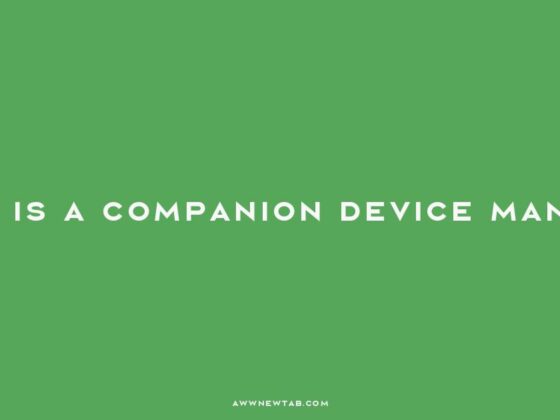Why is Safari Not Recommended as a Browser?: Is Safari really the king of the jungle when it comes to web browsing? Well, it’s time to debunk the myth and reveal the truth behind this popular browser. In this blog post, we will explore why Safari is not a good browser and uncover the reasons why it falls short in the fiercely competitive world of internet surfing. So, grab your binoculars and join us on this wild safari as we navigate through the pitfalls and quirks of Safari. Get ready for a bumpy ride, because this is going to be one safari you won’t forget!
## Web Technology Support and Compatibility
Issues with Emerging Web Standards
One of the main gripes against Safari is its pace in adopting new web technologies. Developers often voice concerns that Safari lags behind other major browsers in supporting cutting-edge features. This can lead to websites and web apps not performing optimally or even failing to work properly on Safari. This is not just a minor inconvenience; it affects the very fabric of web experience and innovation.
Real-World Implications for Users
The delay in embracing new web standards means that users may not get to experience the full potential of the web. For instance, a new CSS feature that enhances visual layout might be widely available in browsers like Chrome or Firefox, but Safari users would miss out until Apple decides to provide support. This creates a fragmented web where the experience is inconsistent across different platforms.
## Performance and Speed
Chrome vs. Safari: The Speed Debate
When it comes to speed, milliseconds matter. Chrome has consistently been recognized for its quick performance, and while Safari is no slouch, it is often considered a step behind. This slight edge that Chrome has over Safari can be crucial for power users who demand the utmost efficiency and speed in their browsing experience.
User Experience and Fluidity
Speed is not just about how quickly a page loads but also about the fluidity of the user experience. A browser that can handle complex animations and interactive elements without stuttering is essential for modern web browsing. While Safari is optimized for Apple devices, some users still feel that Chrome offers a smoother experience.
## User Frustration and Default Browser Dilemma
The Struggle with Safari as Default
Many users express frustration with Safari, primarily when it is set as the default browser on Apple devices. The inconvenience of having to switch manually to another browser for better compatibility or features can be a constant source of irritation. Furthermore, setting another browser as default on iOS devices is not as straightforward as on other platforms, adding to the vexation.
Memory and Energy Errors
Some Safari users have reported encountering memory or energy errors, indicating that the browser may sometimes struggle with resource management. This can lead to unexpected crashes or the browser consuming more power than necessary, which is particularly concerning for those using portable Apple devices where battery life is precious.
## Extension Ecosystem and Flexibility
Chrome’s Rich Extension Library
Chrome’s extensive library of extensions is a strong selling point. Users can customize their browsing experience to an incredible degree, thanks to the myriad of extensions available for everything from productivity to entertainment. Safari’s extension offerings are more limited, which can be a significant disadvantage for users looking to tailor their browsing experience.
The Trade-Off Between Extensions and Performance
While having a wealth of extensions at your fingertips is wonderful, it’s important to note that each extension can impact browser performance. Chrome users may face the dilemma of balancing the desire for extensions with the need for a swift and responsive browser. However, with the right management, Chrome can still offer both variety and speed.
## Integration with Apple Devices and Privacy
The Apple Ecosystem Advantage
Safari shines when it comes to integration with the Apple ecosystem. If you are deeply embedded in the Apple world, using Safari ensures a seamless experience across all your devices. Features like Handoff, iCloud Keychain, and Universal Clipboard are designed to work effortlessly with Safari, providing a level of convenience that other browsers struggle to match.
Privacy as a Priority
Apple has positioned Safari as a privacy-centric browser, with strong protections against tracking and fingerprinting. Safari’s Intelligent Tracking Prevention is a notable feature that helps users keep their browsing private. For those who prioritize privacy over all else, Safari’s commitment to user data protection is a compelling reason to stick with it despite its shortcomings.
## Conclusion: Balancing Trade-Offs
In the browser wars, it’s clear that Safari has both strengths and weaknesses. While it may not always be the fastest or the most flexible, it offers unparalleled privacy features and integration with Apple devices. On the other hand, Chrome provides speed, a vast extension library, and better compatibility with emerging web technologies. Ultimately, the choice of browser comes down to prioritizing what matters most to you as a user – be it speed, customization, privacy, or ecosystem synergy.
The evolution of web browsers is ongoing, and user feedback plays a crucial role in shaping their development. As such, while Safari might not be the perfect browser for everyone, it continues to be a key player in the browsing experience for many, especially within the Apple user base. Whether future updates will address its current limitations remains to be seen, but for now, users must navigate the trade-offs and choose the browser that best fits their needs.
FAQ & Related Questions about Why Safari Is Not A Good Browser
Q: Why does Safari not always support the latest web technologies as quickly as other browsers?
A: Safari may not always support the latest web technologies as quickly as other browsers, which could impact the performance of certain websites and web applications.
Q: How does Safari’s lack of support for the latest web technologies affect its performance?
A: The lack of support for the latest web technologies in Safari can impact the performance of certain websites and web applications, as they may not function optimally or may have limited features.
Q: Is Chrome faster than Safari?
A: Yes, Chrome is considered slightly faster than Safari in terms of browsing speed.
Q: Why do some people find Safari frustrating to use as the default browser?
A: Some people find Safari frustrating to use as the default browser due to its slower performance, lack of support for certain web technologies, and limited extension options compared to Chrome.
Q: What are the main differences between Chrome and Safari?
A: The main differences between Chrome and Safari are speed, security features, and system integration. Chrome is generally faster and offers more extensions, while Safari delivers better integration with Apple devices and superior privacy features.


